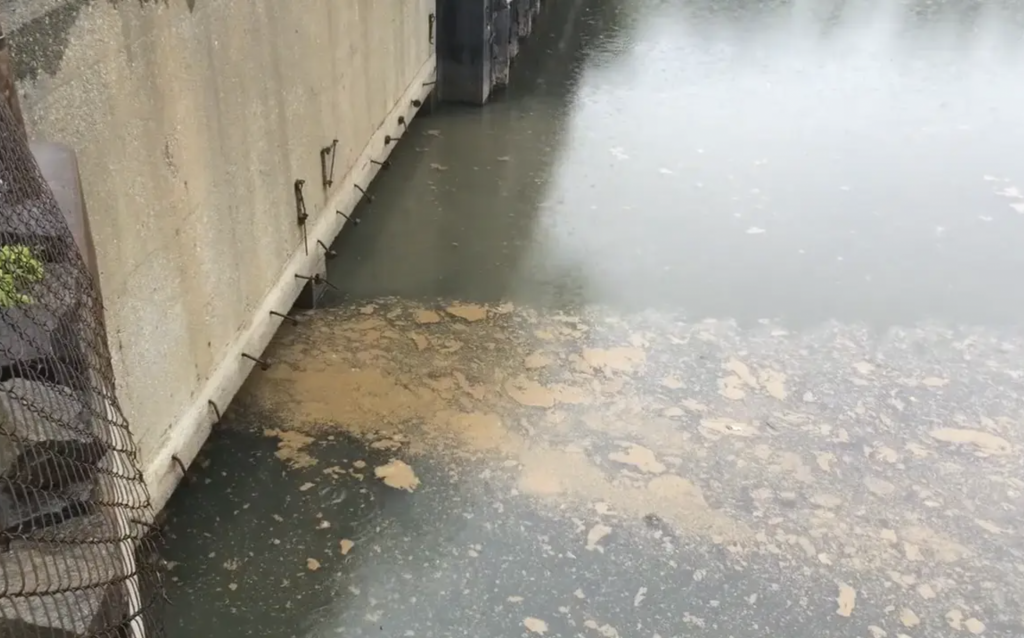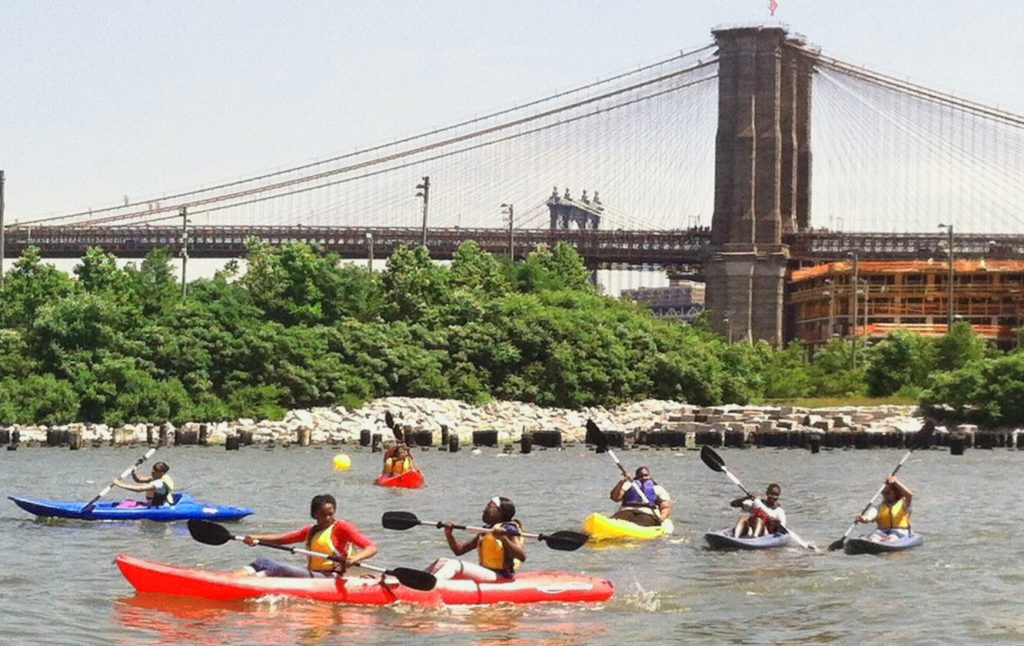In 2015, the New York State Department of Conservation (DEC) passed new water quality standards that finally set the goal of making waterways around the city clean enough for the public to safely swim. The new regulation would have forced a significant reduction in the volume of raw untreated sewage that is currently dumped from the city directly into its waterways every time it rains. Today New York State dropped those standards from their regulations, sending us back untold years in our efforts to address insufficient sewage treatment in the city and the water pollution it creates.

If this regulation is implemented it will have a measurably negative impact on the health of people who swim and paddle in the East River up to Whitestone Bridge. It will also mark a reversal from strengthening public health protections for New York waters under the Clean Water Act to weakening them.
Past progress and expanded water recreation around NYC
In 2015, DEC established that Class I and Class SD waters around New York City, including the East River in western Long Island Sound, must not only be suitable for fishing and secondary contact recreation (such as boating), but must eventually be safe for primary contact recreation such as swimming (although other factors, such as boat traffic, could limit that use). As Clean Water Act requirements, and litigation by environmental organizations to enforce it, have improved the water quality in New York City over the past several decades, we know there are already many people increasingly using the waterbodies for small boating, paddling, and even swimming.

Save the Sound, along with NRDC, Riverkeeper, and others, have already sued EPA over New York City’s standards that fail to meet the requirement to protect swimming and primary contact recreation. That lawsuit is currently pending before a judge in federal district court for the Southern District of New York.
NY State reversing clean water goals for NYC
Remarkably, DEC has now proposed amendments to reverse these standards altogether and to downgrade the waters so they no longer have to be made safe for primary contact recreation. This is not theoretical–it will have a real impact on how much raw sewage the city can continue to discharge into its waterways moving forward. Quite simply, the lower standard will allow more raw sewage. While meeting the standard would not have to be immediate (the process will extend over several decades) they would have to continue to make progress toward that goal. By effectively downgrading the waters, they will be free to discharge levels of sewage that would imperil public health in perpetuity.
What is even more troubling is that DEC is trying to make this change without public accountability or process. Generally to downgrade water quality standards, the agency must do an extensive study called a Use Attainability Analysis (“UAA”) and that must be approved by EPA as supported by science. We do not believe they could meet these standards or get through the associated public process. But in an attempt to subvert this process, DEC is characterizing these changes as a “clarification” of the standards that were passed in 2015 and arguing that clarifications do not need public process or approval. Changing a use from swimming to fishing and boating is not a clarification, however. This is a substantive change, from a more-protective to a less-protective standard, with no scientific record or legal basis to support it.
This unsupported rollback violates principles of good government, threatens the public health, and violates the Clean Water Act. We hope that EPA will reject it on those bases. If not, however, we are fully prepared to continue our court battles to protect the waterways and the residents of New York City.
